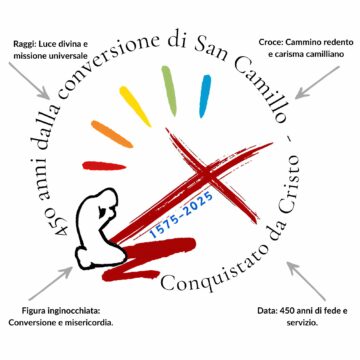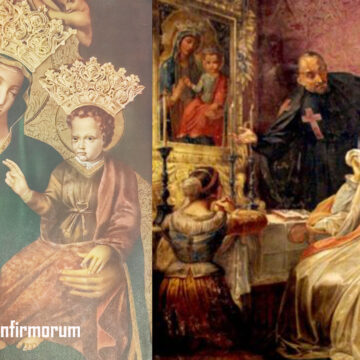A medical doctor was doing his rounds in a hospital and entered the room of Mrs Bernard who had been admitted because of a fractured ankle and had had a rather complicated period of stay in the hospital. She had recently gone through some rather severe moments: she had lost her only son in a tragic accident six months previously and only five weeks had passed since her husband had died following a brain haemorrhage, leaving her alone in a large metropolitan city. And yet to his great surprise, the medical doctor found her rather at peace.
He asked her with curiosity: “Mrs Bernard, given everything, you seem to be managing the situation rather well despite these sad losses in your life. Many people would be rather shaken by all of this. But you seem calm and you give the impression that you are accepting your situation well. What helps you to deal with it as you have been dealing with it?”. She replied: “This is what helps me. Every time I feel sad or depressed, I take my Bible and I read something and that calms me down. Even when I wake up during the night and feel alone or afraid, I read the Bible or I speak to God. He is always here, even when my family or my friends are not!”
There are presences that give us a feeling of security. In his book, Massimo Racalcati, today’s most read psychoanalyst, cites a little story. A young niece of Sigmund Freud was afraid of sleeping in the dark and asked her mother every time she went to sleep in her little bed to remain with her. One night her mother said to her: “the time has come for you to go to sleep, I have to turn out the lights”. The little girl was rather troubled and answered: “yes, turn out the lights if you want, but stay here with me, because your words are light, if you speak it is the light”. The words of her mother protected her against the dark.
By the term ‘attachment’ John Bowlby, a famous psychoanalyst, defined that special affective and relational tie that is established between a child, from the moment of his or her birth onwards, and the person who takes care of him or her and in particular his or her mother (‘caregiver’). This relationship has certain specific characteristics that mark it out from other kinds of affective relationships: the person who lives this tie of attachment seeks proximity to the caregiver, in particular during moments of fear and difficulty; the caregiver offers care and protection (acts as a safe refuge) but also provides a sense of security (acts as a safe base from which to leave and to which the person can always return); the threat of separation produces anxiety in a person who is afraid of losing this kind of attachment; and the loss of the attachment figure causes an experience of mourning.
God can also be a seen as a figure of ideal attachment, as a protective refuge. Experience of faith is characterised by a search for nearness to, and contact with, God, through prayer, sacred places and symbols that make His presence perceivable. God represents a safe refuge, a person who gives protection, support and comfort in difficult situations, in experiences that involve danger and fear. A believer reacts with pain, anger and depressive moments to a perception of separation from God, of loss of contact with Him, of His ‘betrayal’. God is experienced as a safe base from which to start one’s experiences and to which one can always return at moments of difficulty. The parable of the prodigal son who returns to the secure base of his father’s home is a fine example of this.
The tie of attachment experienced with God, which is expressed in a relationship with Him, is the result of affective excanges between the believer and the divine figure, precisely as takes place in the relational story of the child and his or her attachment figure. The proximity of the attachment figure, experienced initially as physical proximity, is gradually transformed into proximity experienced in a more psychological and spiritual dimension. Human desire does not ‘invent God’ but, rather, leads to the rediscovery, in some images of Him, of important affective responses that satisfy troubles of the heart. God is experienced, during moments of illness and pain, as an ideal attachment figure who comforts, nourishes and gives strength so that one can go through the difficult experiences of life. He is a refuge who gives security.
During moments of fear we are accompanied and comforted by the words of the Psalm: ‘Even though I walk in the valley of the shadow of death, I fear no evil; for thou art with me; thy rod and thy staff, they comfort me’. We are in good hands, in the hands of God, who, as Mrs Bernard says, ‘is always here’.
Luciano Sandrin













Camillians on Facebook
Camillians on Twitter
Camillians on Instagram